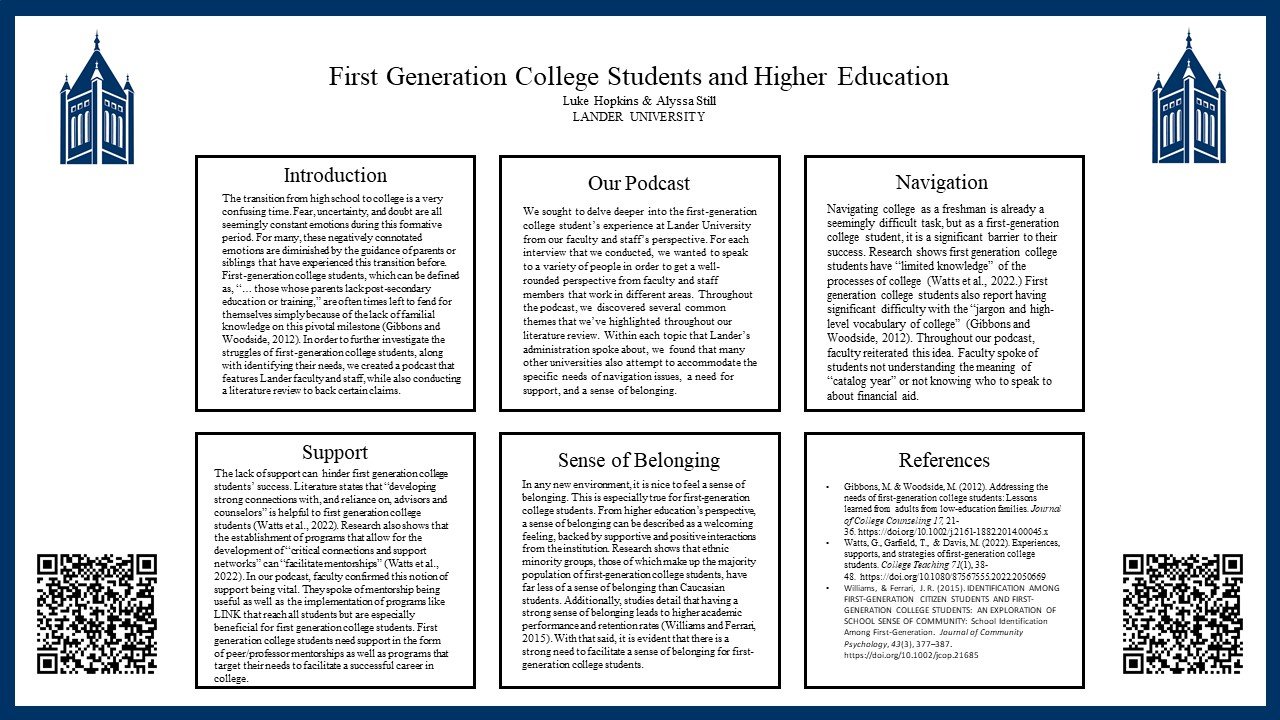First-Generation College Students and Higher Education
Luke Hopkins, Alyssa Still
Generally speaking, the transition from high school to college is a very confusing time. Fear, uncertainty, and doubt are all seemingly constant emotions during this formative period. For many, these negatively connoted emotions are diminished by the guidance of parents or siblings that have experienced this transition before. First-generation college students, however, are often times left to fend for themselves simply because of the lack of familial knowledge on this pivotal milestone. Higher educational institutions have recently been implementing more programs to alleviate some of the stress that first-generation college students undergo. We first sought to gain insight on Lander University’s administration and faculty, along with their views on the struggles that first-generation college students face, where our goal was to use a journalistic approach to better understand the programs and plans in place that Lander has for first-generation college students. By means of recording a podcast, we aimed to display the transparency that Lander administration and faculty has surrounding first-generation college students. Additionally, our literature review serves as a comprehensive reinforcement of many of the ideas that we touched on in our podcast, along with showing the positive results that first-generation college students reap when there are intentional programs centered around first-generation college students and the importance of a strong sense of community and support.
Luke Hopkins graduated from Dixie High School in Due West and is a senior psychology major with a pre-law minor as well as a member of the Honors College. His achievements include working as a Presidential Ambassador on campus, presenting research at the 2021 Academic Symposium, and serving as a Teaching Assistant for two upper-level psychology courses.
Alyssa Still graduated from Barnwell High School and is a senior psychology major with minors in human services and child and family studies. She is a member of the Honors College, and other achievements include working as a Presidential Ambassador on campus and being a Teacher’s Assistant for Quantitative and Research Skills.
